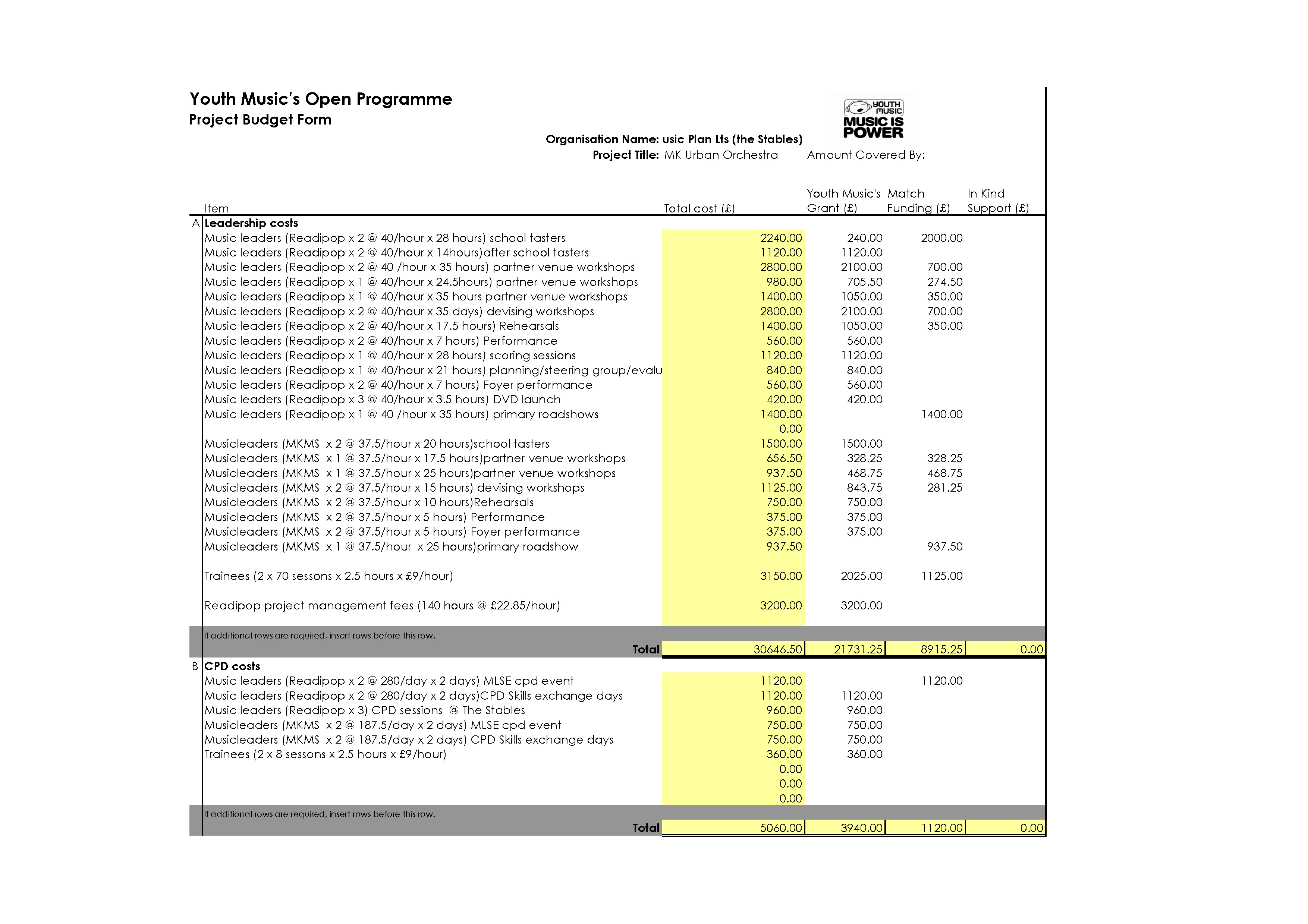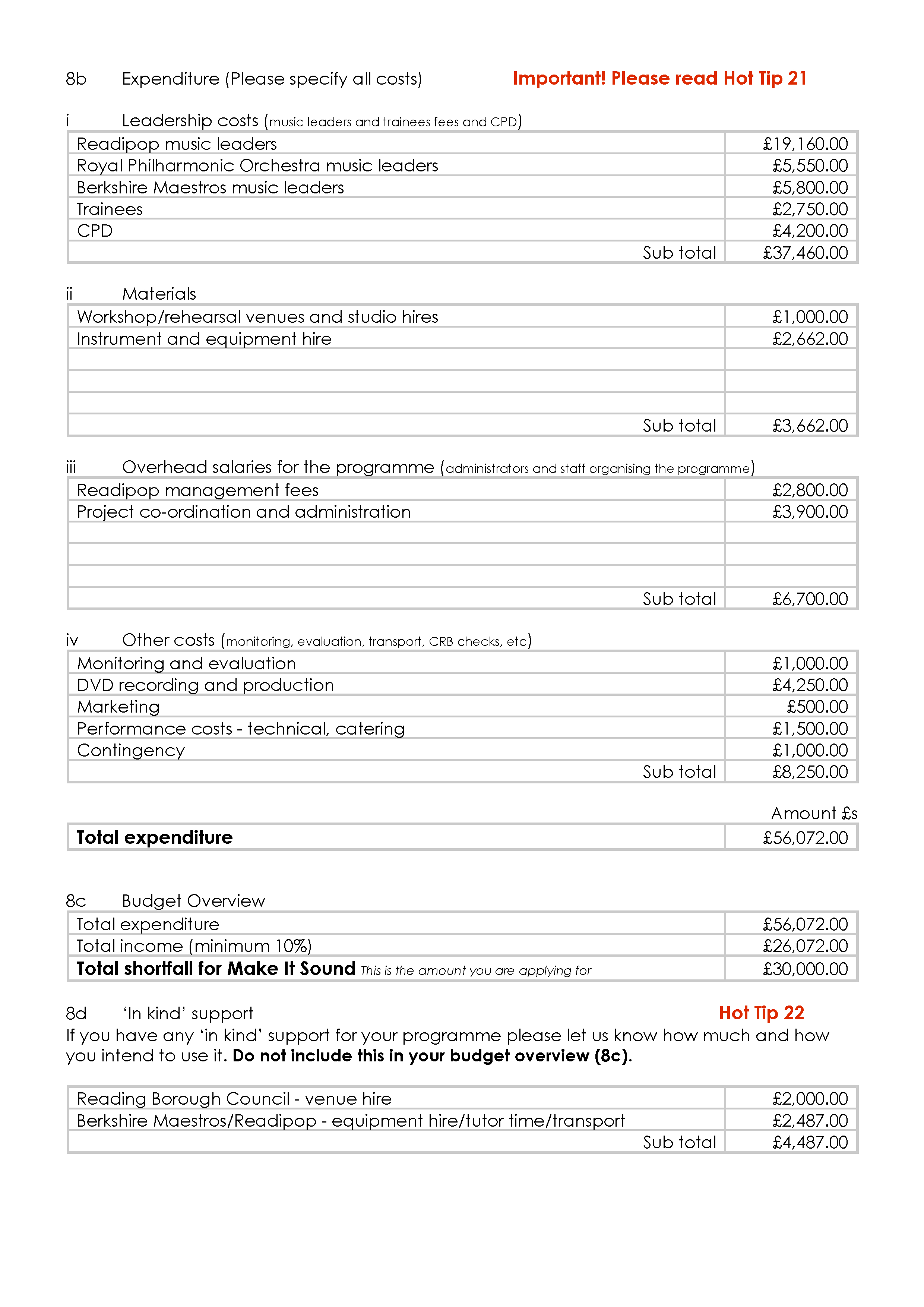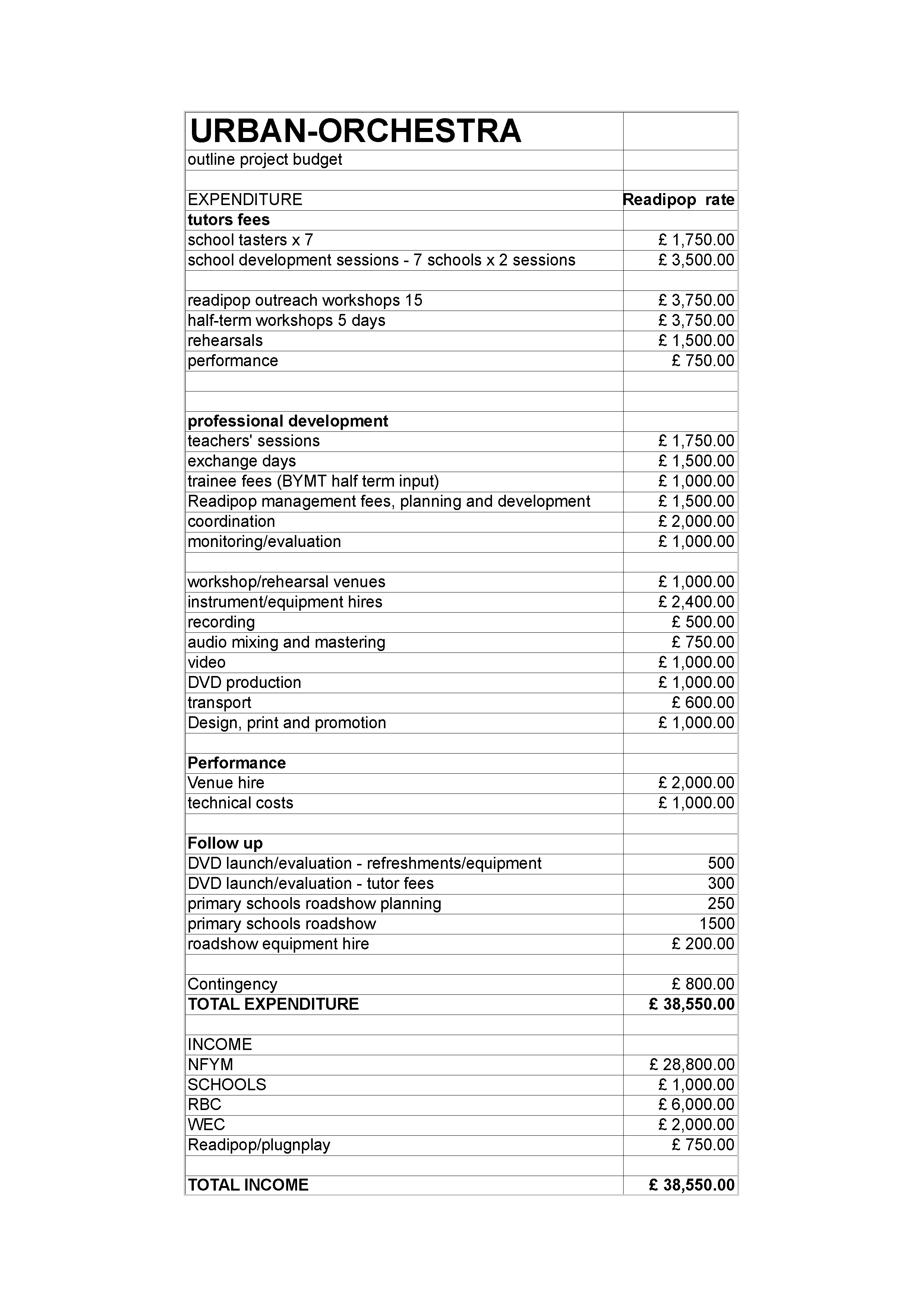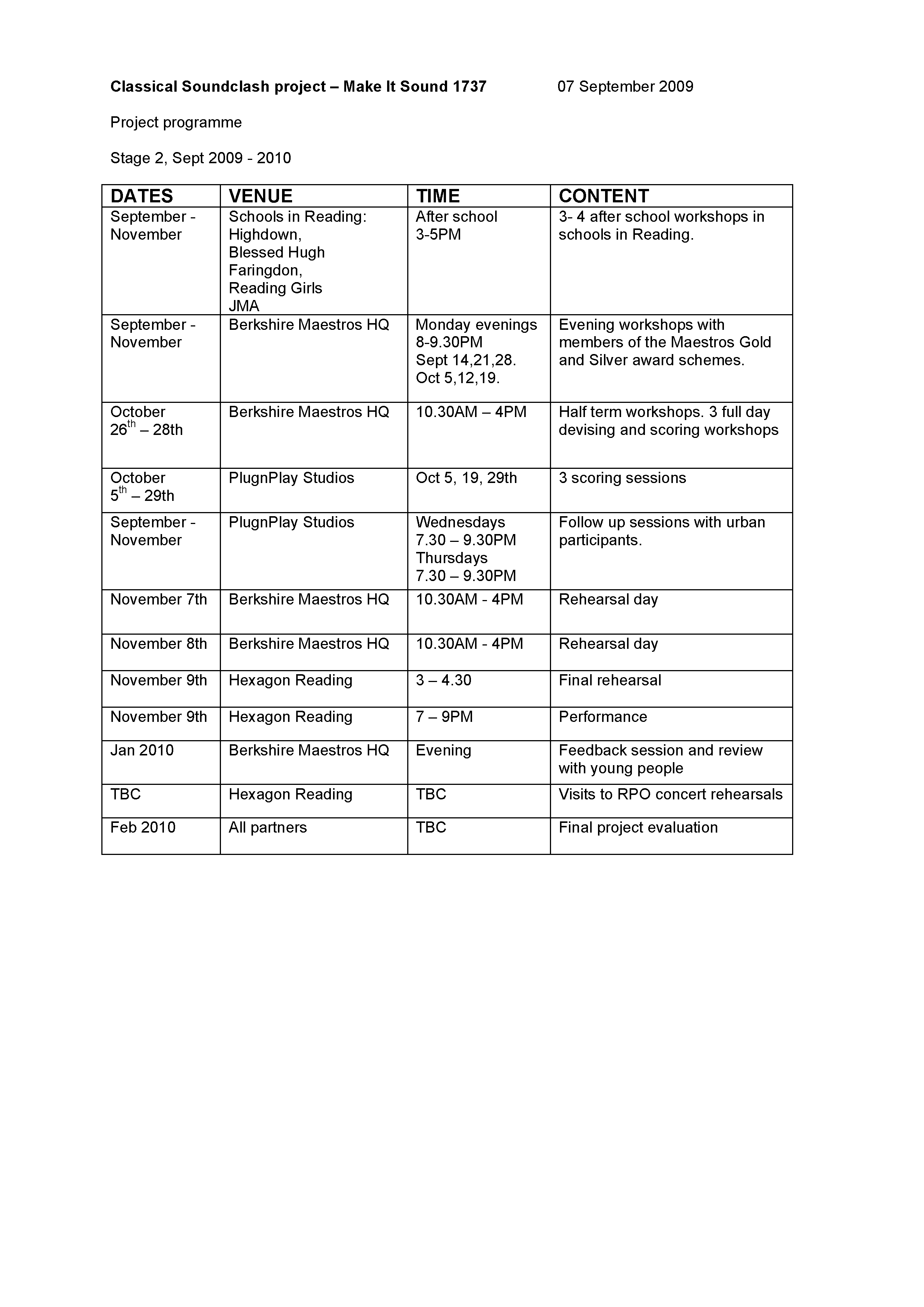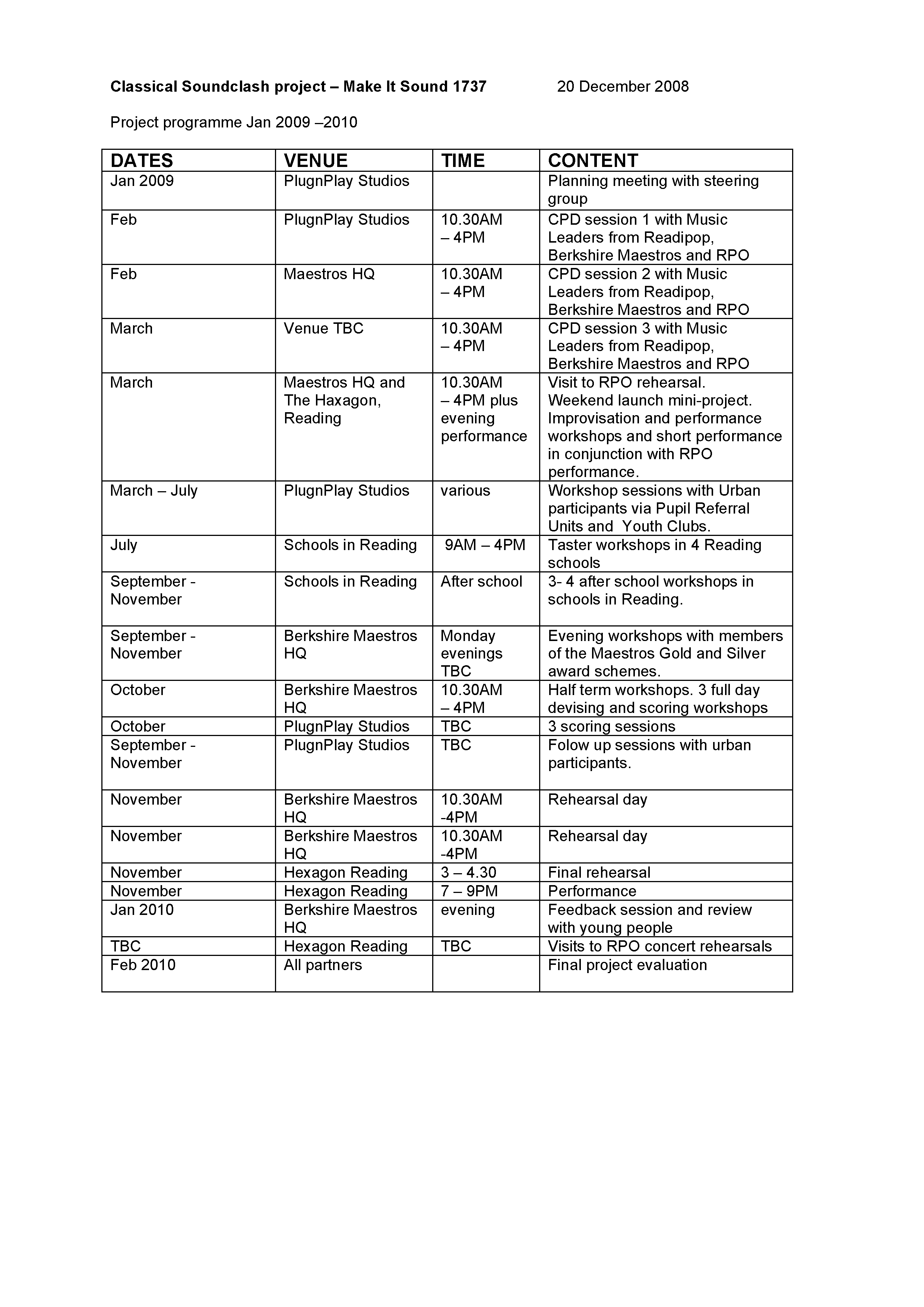Urban-Orchestra project.
Project outline.
The project will include:
- Experienced young orchestral musicians.
- Young musicians from “urban” styles who have not previously worked with BYMT.
- Socially excluded young people who have been previously engaged by Readipop but who have never worked with traditional orchestral instruments.
- Professional development opportunities for BYMT tutors in DJ skills and the use of music technology
- Professional development opportunities for Readipop tutors in orchestration and working with classical ensembles.
- A final performance event
- A recording and the production of a CD or DVD
The project will
- encourage young people to explore musical forms that they are not familiar with
- encourage young people to experiment and improvise
- enable young people top devise and compose throughout the process
- Encourage an exchange of ideas between young people with different musical understandings
- Develop working relationships between Readipop, BYMT, Reading schools and other relevant local agencies.
Timescale
- Feb/March 2005 – planning and making funding applications
- May 2005 – funding confirmation and detailed planning.
- June/July 2005 – contact schools, taster sessions, in-school training sessions with Teachers.
– Training and exchange sessions Readipop/BYMT
- Sept-Oct 2005 – outreach and after school sessions, half-term intensive workshop week
- Nov/Dec 05 – final rehearsals and performance(s).
- Jan 06 – final evaluation and production of DVDs
Structure
- RBC to be the lead coordinating organisation and will provide the final venue eg. Town Hall
- Readipop to manage project.
- Funding – we will seek funds from Youth Music. Matching funds will be required from RBC and other partners.
- Other partners – Schools, W.E.C.
Workshop Plan.
May
- Readipop will meet with the music teachers from each of the 7 schools involved in the project to introduce the ideas and work on forward planning.
June/July
- 2 sharing days for Readipop and BYMT tutors. Each organisation will host one day and will run workshops and activities to demonstrate how each organisation works.
- 7 taster/training days in schools. The project tutors from Readipop and BYMT will spend a day in each school. Half the day will be spent with the school music dept addressing planning and training issues (eg running music tech/DJ workshops). Tutors will also run taster sessions with potential participants from the school eg bringing a small group together to do a scratch performance with MCs, DJs, music tech and live musicians from the school.
September
- Readipop will run 10 outreach/taster sessions with potential ‘urban’ musicians to develop the idea of playing with ‘classical’ musicians and to prepare them for how they will need to approach working in a large group.
- Readipop will deliver 2 after school sessions in each school together with a BYMT tutor to develop ideas, devise roles and work out what the orchestra will consist of.
October half term
- 5 day intensive workshop week to devise and develop the piece together with the participants. This will involve 3 Readipop tutors plus tutors from BYMT and potential involvement of music teachers. Final roles will be agreed including how the performance will be conducted and who will do it! All musical and technical issues will be finalised at this stage. A score and CDs will be produced by Readipop for individual and small group practice. These rehearsals will be recorded on video as part of the monitoring process.
November/December
- 2 full day rehearsals (could be hosted by 2 of the schools)
- performance – full day of technical, musical & final rehearsals plus an evening performance.
- Final video interviews will take place at the after-show.
Jan 06
- Creation of the performance DVD – possible shows in the schools?
- final project evaluation and follow up plan.
